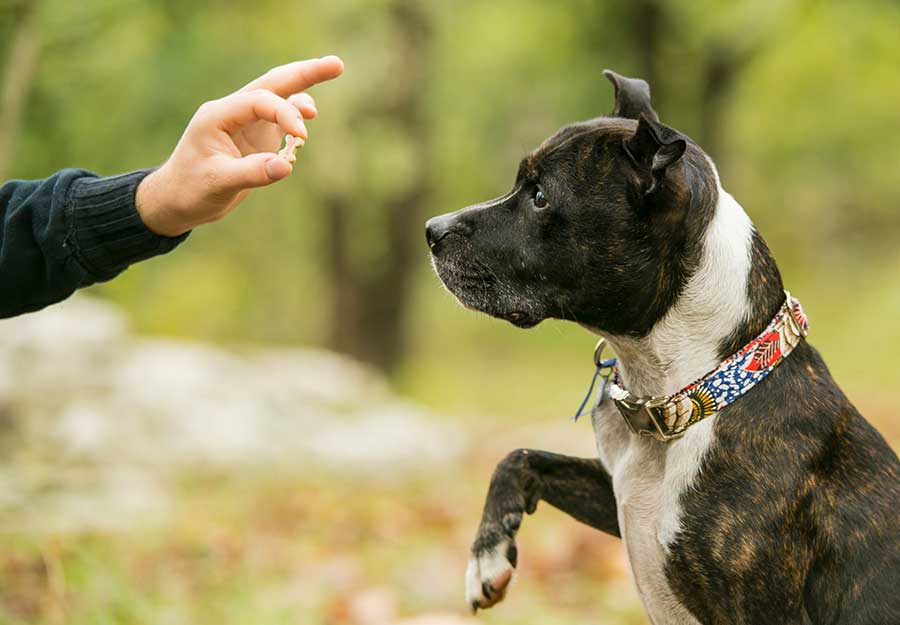Boost Your Abilities with Local Dog Training Charlotte Programs
Boost Your Abilities with Local Dog Training Charlotte Programs
Blog Article
The Ultimate Guide to Canine Training: Structure a Happy, Loyal Pet Dog
Reliable pet dog training is a multifaceted process that pivots on a deep understanding of canine habits and the application of tested techniques. By welcoming favorable support and consistent command usage, pet owners can cultivate not only obedience but also a solid, trusting relationship with their pets. The trip does not finish with standard commands; resolving behavior problems and developing a supporting training environment are just as important components. As we discover these aspects, it ends up being noticeable that the course to a mannerly and material canine companion may hold a lot more intricacies than one may originally presume.

Recognizing Pooch Habits
Just how does a pet's actions mirror its mental and emotional state? A pet's actions can function as a window into its sensations, requirements, and total emotional well-being. A wagging tail typically indicates happiness and excitement, while a decreased tail may suggest worry or submission. Vocalizations such as whimpering or barking can connect a range of feelings, from joy to distress.
Body language also plays a crucial function in recognizing canine habits. A loosened up pose and open mouth signal comfort, whereas strained muscle mass and pinned ears may recommend stress and anxiety or aggression. Observing these signals is vital for recognizing the origin of a pet dog's habits, whether it comes from disappointment, anxiety, or exhilaration.
Additionally, a pet's communication with its setting and other pets can provide understanding into its emotional state. For example, a dog that engages happily with other dogs is most likely feeling secure and social, while one that exhibits evasion or aggression may be experiencing anxiety or instability. Recognizing these behavioral cues is important for fostering a solid connection in between the owner and the pet dog, eventually contributing to the dog's psychological wellness and health.
Essential Training Strategies
Efficient pet dog training techniques are essential for fostering preferable habits and strengthening the bond between a pet and its proprietor. Using favorable support is just one of the most effective approaches, where incentives such as deals with, appreciation, or playtime are offered to enhance desired behaviors (dog training charlotte nc). This urges the canine to duplicate those behaviors, developing a favorable understanding atmosphere
Uniformity is one more vital element in pet dog training. Commands should be consistent and clear, and all relative must apply the exact same regulations to prevent perplexing the pet dog. Timing is just as vital; rewards ought to be given quickly after the desired actions to establish a clear connection between the reward and the activity.
In addition, brief and interesting training sessions work, as dogs have varying interest spans. Go for sessions of 5 to 15 mins, depending upon the pet's age and power degree. Including play into training can likewise improve motivation and satisfaction for both the dog and the owner.
Last but not least, persistence is critical. Pet dogs discover at their very own pace, and maintaining a calm behavior will assist alleviate stress, making certain a favorable training experience. These important techniques prepared for effective pet dog training and a harmonious partnership.
Standard Commands to Show

Usage treats, praise, and play to reward your pet dog's successes. By instilling these standard commands, proprietors outfit their pets with the abilities needed for a well-behaved and unified partnership.
Addressing Typical Behavioral Concerns
Recognizing and addressing usual behavior concerns in canines is vital for promoting a harmonious connection between animals and their owners. Numerous canines exhibit actions such as excessive barking, eating, or hostility, which can originate from stress and anxiety, boredom, or lack of proper training. Identifying the root cause of these actions is the primary step towards reliable intervention.
As an example, too much barking might suggest a requirement for interest or a reaction to environmental stimuli. In such cases, proprietors need to evaluate the pet's atmosphere and provide ample mental stimulation, such as interactive toys or normal exercise. Eating can frequently be managed by rerouting the habits to suitable chew products and making certain that the pet dog has adequate exercise to decrease monotony.
Hostile behavior calls for careful handling and may demand professional training support. It's essential to understand that have a peek here punishment can worsen anxiety and hostility, causing a cycle of behavior issues. Rather, emphasis on favorable support techniques to reward desirable habits and strengthen a feeling of protection.
Structure a Positive Training Atmosphere
Creating a positive training setting is basic for reinforcing preferable habits in canines and alleviating behavior concerns. This setting should be characterized by uniformity, inspiration, and a clear understanding of the training purposes. By developing a find more regular, canines learn what is expected of them, which assists lower anxiousness and complication.
Making use of positive support strategies, such as treats, praise, and play, fosters a sense of safety and inspiration in the pet dog. Rewarding etiquette instantly and continually strengthens the desired actions, making the training procedure more efficient - dog training charlotte nc. In addition, trainers need to stay individual and calmness, as dogs are sensitive to their trainers' feelings
The training room should be cost-free from interruptions to ensure the dog can concentrate on the jobs at hand. Take into consideration using a silent area or a safe and secure outside area. Furthermore, incorporating playtime and socialization into training sessions promotes a well-rounded approach, improving the pet dog's knowing experience.
Inevitably, a positive training setting nurtures a strong bond in between the pet and handler, bring about an obedient, pleased pet. By prioritizing this environment, pet dog owners can successfully address behavior challenges and grow an effective training journey.
Verdict
Efficient canine training relies on a comprehensive understanding of canine habits and the application of favorable support strategies. Adopting these concepts guarantees a rewarding training experience for both pets and their owners.
Effective canine training is a complex process that pivots on a deep understanding of canine habits and the application of proven methods. A pet that involves happily with various other dogs is likely feeling secure and social, while one that shows avoidance or aggressiveness may be experiencing anxiety internet or insecurity.Efficient pet training techniques are crucial for fostering preferable actions and strengthening the bond in between a pet dog and its proprietor.Developing a positive training environment is fundamental for strengthening desirable habits in pet dogs and alleviating behavioral issues.Effective pet training depends on a thorough understanding of canine habits and the application of favorable support strategies.
Report this page